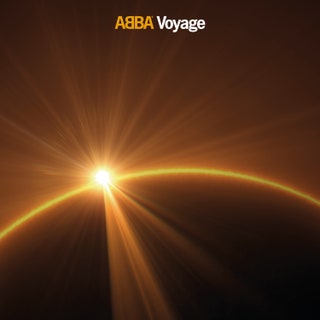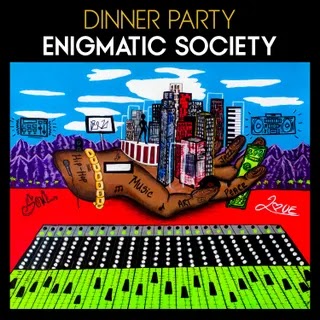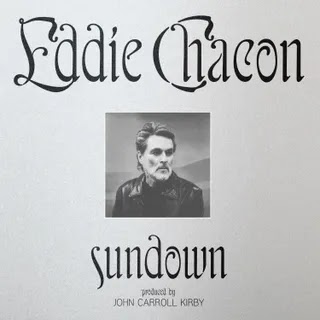Returning with their first new album in 40 years, the Swedish pop titans attempt the seemingly impossible: balancing the lure of nostalgia with the pull of the present day. Amazingly, they pull it off.
Rarely has a reunion seemed as superfluous as ABBA’s. In Europe and Australasia, 40 years after they first broke up, ABBA remain omnipotent, an ever-present part of the pop landscape, like guitar solos and interminable Coldplay album rollouts. The band’s legacy may have dimmed slightly in the 1980s, after their split at the start of the decade. But since the early 1990s—and particularly following the release of ABBA Gold in 1992—ABBA’s traces can be found in every nook and cranny of cultural life, from musicals to movies, Madonna to museums.
That means the stakes for the band’s comeback, with Voyage, are both impossibly high and curiously low. (As ABBA co-songwriter Benny Andersson recently told The New York Times, “What is there to prove? They’ll still play ‘Dancing Queen’ next year.”) ABBA could return with a song as irrationally perfect as 1975 hit “S.O.S.” and it still wouldn't resonate with the same lived-in emotional significance as the 19 songs on ABBA Gold. At the same time, as long as ABBA 2021 sound vaguely in line with the classically inspired, slightly nerdy Swedish pop overlords of popular memory, their recorded return will be loaves and fishes to their fans, who have already forked out in their thousands to watch digital avatars of Agnetha, Benny, Björn, and Anni-Frid prance around a London stage.
Much like the forthcoming digital residency, the band’s new album falls somewhere between the lure of nostalgia and the pull of the present day. Voyage is a mixture of songs, old and (mostly) new, that have all the glam boogie, scandi-disco bounce, and epic pop construction of the band’s revered catalog, with some tentative nods to the passing of time. They may have kept the music on Voyage “absolutely trend-blind” to modern pop production, but Agnetha Fältskog and Anni-Frid Lyngstad's vocals have a slightly world-weary, aged tone to them, their vocal range a touch lower than in their pomp, while the album’s lyrics frequently speak of old times, faithful friends, and the demands of parenthood.
It feels almost rude to ask for anything more. Voyage is as richly harmonic, smartly constructed, and satisfying as you might expect of Benny Andersson and Björn Ulvaeus, two of the most talented songwriters in the history of pop music. “Keep an Eye on Dan,” “No Doubt About It,” and “Don’t Shut Me Down” are home to some of the best pop melodies of the year—vaguely unpredictable yet glaringly obvious once heard. They’re also fantastically arranged, with hooks piled on top of hooks, gently arranged on a bed of unusual musical choices, like the suggestion of reggae on “Don’t Shut Me Down” or the gnarled-around-the-edges electronics and irregular cowbell on “Keep an Eye on Dan.” The musical winks to the band’s past are a nice touch, too: “Keep an Eye on Dan” closes with the same piano melody that opens “S.O.S.,” while the soaring flute opening of “Bumble Bee” is surely a nod to “Fernando.”
But, as Benny and Björn’s very successful if never entirely satisfying post-ABBA musical Chess demonstrated, without the vocals of Agnetha and Anni-Frid—perhaps pop music’s most durable lead vocal combination—ABBA are just BB. Their voices are what make the group, and they’re still capable—both solo and in duet—of expressing melancholy and ecstasy within the same breath. On “I Still Have Faith in You” when Anni-Frid declares her enduring faith after all these years, as if through gritted teeth, you can feel the maculate defiance, her voice strong but still haunted by the passing of time. And Agnetha’s delivery of "Don't Shut Me Down”’s opening lines—“A while ago, I heard the sound of children's laughter/Now it's quiet, so I guess they left the park”—is nothing short of devastating.
ABBA understand, perhaps better than any other band, the epic importance of pop music against the humdrum rumble of everyday life. Pop matters to ABBA because people and feelings matter. But ABBA know that pop can also be ridiculous, and it is a relief to find that the band haven’t jettisoned the outlandishness that marked some of their best material, even as they reflect on the passing of the years. “When You Danced With Me,” the very second track here, is a crossover between pop and Celtic jig that even Ed Sheeran’s “Galway Girl” might consider just a bit too much. “Little Things,” which follows, is a Christmas song that ends with a children’s choir singing about “tiny elves with wings.” Maturity might bring wisdom, but Voyage proves you don’t have to be boring with it.
And yet, by ABBA’s own imperial standards, this is more ABBA Silver than ABBA Gold. “Just a Notion,” the album’s third single, was originally rejected for the band’s 1979 album Voulez-Vous (the Voyage version puts the original vocals over a new backing); winningly chirpy as the results are, that kind of knock back would never have happened to “I Have a Dream,” which places “Just a Notion” squarely in the second tier of ABBA recordings. “I Still Have Faith in You,” meanwhile, is two thirds of a brilliant song, let down by the rather earthbound melody in the song’s verse (if, indeed, it is a verse—these things can be hard to define with a band as hook-laden as ABBA), where Anni-Frid sings “Do I have it in me?/I believe it is in there.” “I Still Have Faith in You” is doubtlessly a great song. But you suspect it would not have passed the band’s titanium quality control in the 1970s, given the strength of some of their unreleased material. In ABBA’s best songs, every second is golden.
Still, a second-string ABBA record is far better than most pop groups can muster, and Voyage is the rare post-reformation album to build upon the band’s legacy without abandoning what we loved about their classic records in the first place. That makes Voyage a surprisingly necessary trip into the present from a band who could have coasted on the warm fumes of adulation ad infinitum.
















0 comments:
Post a Comment